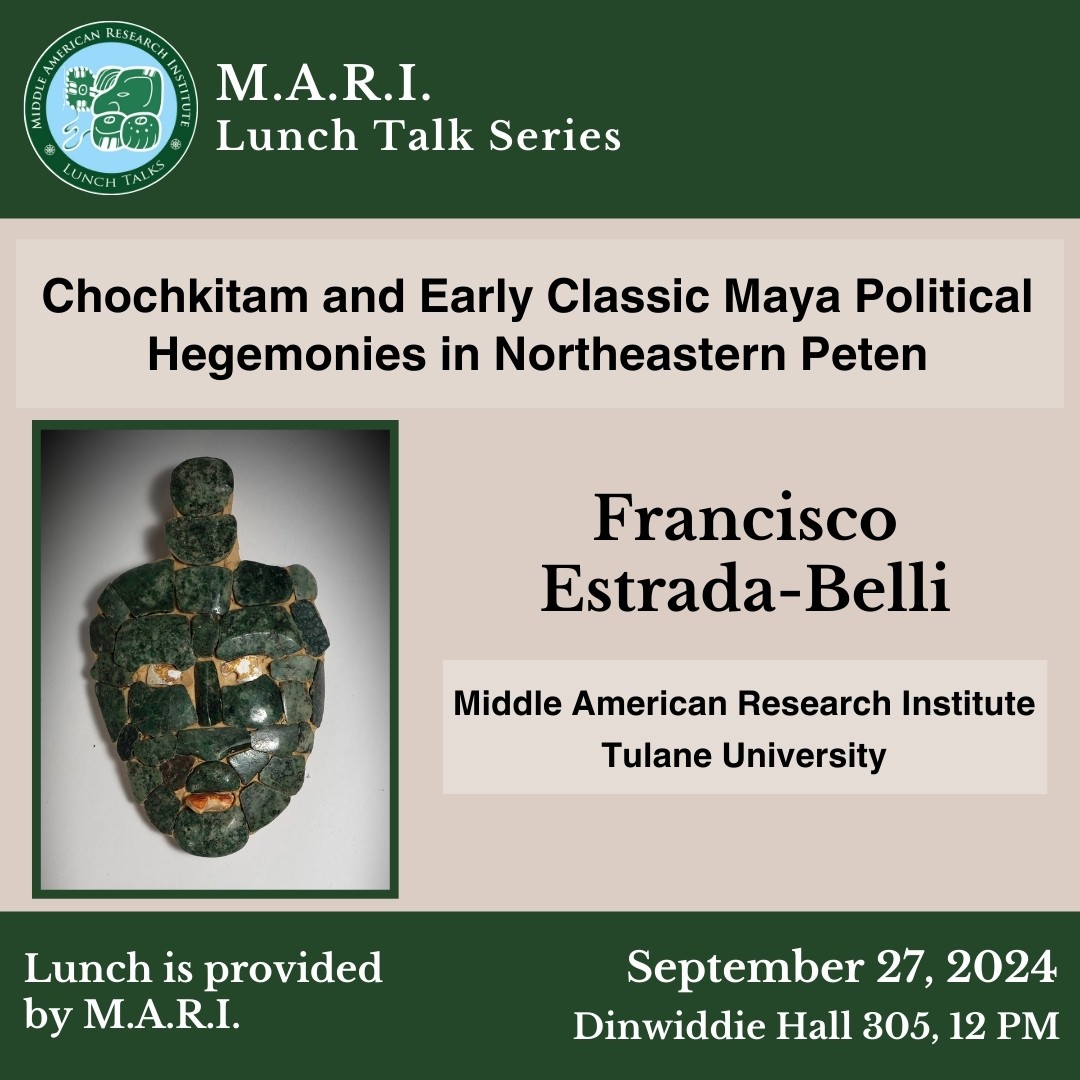Chochkitam and Early Classic Maya Political Hegemonies in Northeastern Peten
Speaker/Performer Name
Francisco Estrada-Belli
Uptown Campus
Dinwiddie Hall
305

One of the most fascinating themes in Maya archaeological research of the last two decades is that of the existence of hegemonic states in the Maya Lowlands during the Classic period. Research at the ceremonial center of Chochkitam, in northeastern Peten, is revealing a previously unknown Maya dynasty with far-reaching political ties. The site is situated on the highest ridge in northeastern Peten and on a potential trade route linking two major rival kingdoms: Tikal in central Peten and the Kaanu’l capital, Dzibanche, in southern Quintana Roo. Chochkitam experienced a peak in construction during the Early Classic period and a second peak during the eighth century of our era. In 2021, we found a reference to a Kaanu’l overlord. Here we discuss the contents of an unlooted burial and an unusual ritual deposit that point to political ties with Tikal and Teotihuacan at the very beginning of the Classic period.
Francisco Estrada-Belli is Research Professor at the Middle American Research Institute of Tulane University, where he manages de MARI-GISLAB. He is the author of the book “The First Maya Civilization. Ritual and Power before the Classic Period” (Routledge 2011). Since 2000, he has directed multi-disciplinary research projects in Peten. His research currently focuses on the emergence of hegemonic states in the Maya region. Since 2016, he has been at the forefront of the use of LIDAR technology to map ancient Maya settlements.
Join the Middle American Research Institute on their inaugural Lunch Talk of the Fall Semester. M.A.R.I. Lunch Talks invite guest speakers to host seminars at MARI on a wide variety of topics related to the archaeology, history, and ethnography of Mesoamerica and other world areas.
